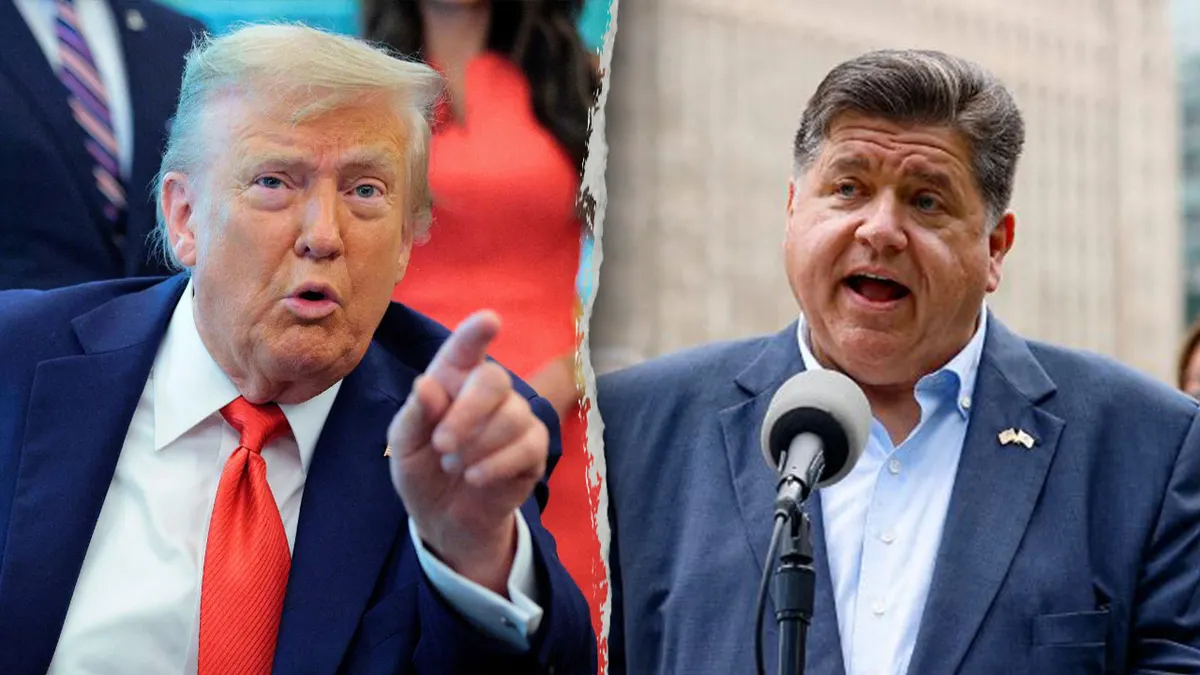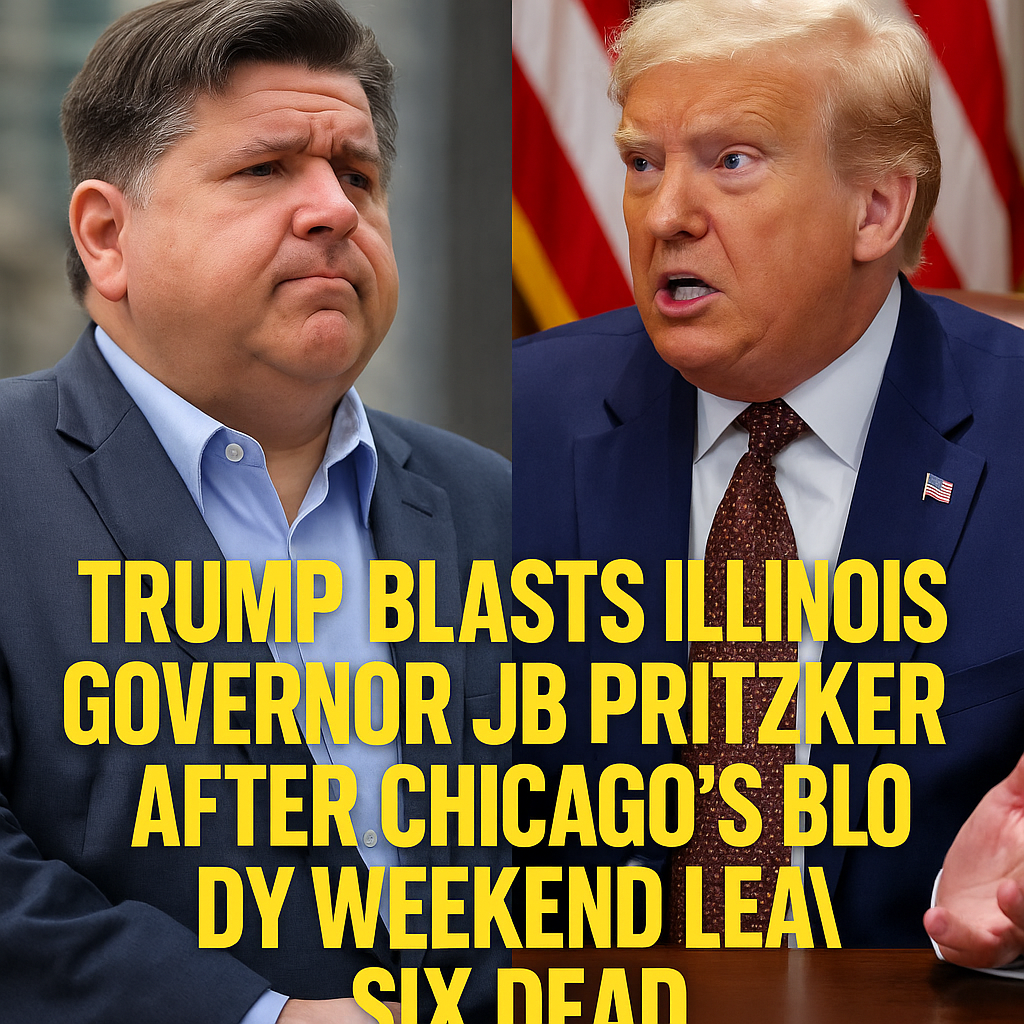Chicago once again found itself in the national spotlight after a weekend of deadly violence. According to local reports, at least six people were killed and more than two dozen were injured in multiple shootings across the city. The tragic wave of bloodshed has reignited political debate about crime in Chicago, with former President Donald Trump launching a scathing attack on Illinois Governor JB Pritzker.
In a fiery social media post, Trump accused Governor Pritzker of being “weak and pathetic,” criticizing him for rejecting federal help in tackling crime. Trump wrote that Pritzker was “crazy” for claiming Illinois did not need assistance in curbing violence, warning that the governor must “straighten it out, FAST, or we’re coming.” The sharp remarks immediately went viral, drawing both support and backlash across the political spectrum.
Chicago has long struggled with high rates of gun violence, and weekends with multiple shootings are unfortunately not uncommon. Still, the latest bloodshed comes at a politically sensitive moment. With the 2024 election season already underway, Republicans are seizing on crime in major cities to argue that Democratic leaders have failed to keep communities safe. Trump’s comments underline how crime in Chicago has become a symbolic flashpoint for broader national debates on law and order.

Governor Pritzker, a Democrat, has previously defended his administration’s approach to public safety, emphasizing investments in community programs, policing reforms, and efforts to address the root causes of crime. However, critics argue that his measures have not done enough to stop the rising tide of violence. Trump’s attack adds further pressure on the governor, suggesting that crime in Chicago could become a talking point in upcoming political campaigns.
The former president’s message also reflects his ongoing strategy of portraying himself as tough on crime and positioning Democrats as incapable of solving major urban challenges. By singling out Pritzker, Trump not only targeted Illinois but also sought to energize his supporters nationwide. His warning that “we’re coming” could signal that crime and law enforcement will play a central role in his campaign messaging moving forward.
Political analysts note that Trump’s remarks are likely to deepen the divide between Republicans and Democrats on how to handle urban violence. While Republicans often push for stricter policing and harsher sentencing, Democrats typically argue for a more comprehensive approach that includes addressing poverty, inequality, and gun control. This clash of philosophies ensures that Chicago’s latest tragedy will not only be remembered as a weekend of sorrow but also as a new chapter in America’s heated debate over crime and politics.
For Chicago residents, however, the political noise does little to ease the pain of families who lost loved ones. As leaders trade blame, the city continues to search for real solutions that can bring peace to its neighborhoods. The question remains: will this crisis be used as a platform for political battles, or will it finally inspire meaningful change?


